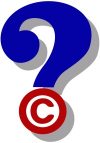
Dear Doc:
Last month, you promised to follow up with some of the rules under which the new Copyright Claims Board (CCB) plans to hear “small claims” copyright cases. So?
Signed,
Still Sick of Being Ripped Off
Dear SSoBRO:
As the Doc said last month, the Copyright Claims Board (CCB) will be a three-judge panel within the U.S. Copyright Office that will decide “small” copyright claims. Damages will be capped at $30,000 per case, with statutory damages limited to $15,000 per work infringed. The new law setting up the CCB may be found here.
While the rules of the CCB are not yet final, we expect them to be prior to December 27, 2021, when the CCB goes into operation. Of course, the Register of Copyrights (that is a person, not a list) may delay that event until June 25, 2022 if needed.
A case may be filed in the CCB within 3 years of the event giving rise to a claim. Recall that the CCB is entirely voluntary, and that a party may “opt out” of a CCB case, forcing it into federal court. There are strict time limits for this, so parties who receive notice of a filing need to act quickly. Unlike a federal court, the CCB may refuse to accept a case filing for one of many reasons, including a crowded docket.
One convenient feature of the CCB is that a case may be filed along with an application to register a copyright claim. Parties do not have to file a registration and wait for it to be processed, as they must in federal court. Another is that the pleading requirements and filing fees are lower than in federal courts. All of this favors small copyright owners, just as Congress intended. There will even be a special set of procedures for cases claiming $5,000 or less. The Doc expects this will result in a flood of cases claiming unauthorized use of graphics on websites!
Once a claim has been filed and properly served, a CCB case will proceed to a limited form of “discovery” that may include the production of relevant information and documents, written interrogatories, and written requests for admission. Note that there will not be oral depositions, except in extraordinary circumstances. This should help to keep the costs down. The Copyright Office has tried to answer many questions.
The detailed rules for the CCB are still open for comment and response until December 15, 2021, and some of the details may change before they become final. Still, the Doc believes that on balance, many individual authors, artists, performers, and others who hold copyrights will greatly benefit from having a simple and rapid forum for vindication of their intellectual property rights. The Doc looks forward to setting up an equally efficient workflow with clients to help them move through such cases.
Have your creative works been pilfered on the Internet (or on a street corner)? Give the attorneys at LW&H a shout. They’ve been protecting clients’ intellectual property for more than 25 years!
Until next month,
The “Doc”
— Lawrence A. Husick, Esq.

